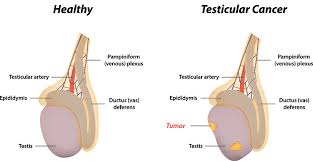London, Feb 6 — Amid a global rise in Alzheimer’s disease cases, a recent study suggests that oral bacteria may serve as an early indicator of brain health, potentially identifying individuals at risk of developing the neurodegenerative disorder.
The research, conducted by scientists at the University of Exeter, UK, highlights how the bacterial composition in the mouth and on the tongue can influence cognitive function. While some bacteria are associated with improved memory and attention, others appear to increase the risk of Alzheimer’s disease.
According to the study, harmful bacteria can impact brain health by entering the bloodstream directly, possibly leading to damage. They may also create an imbalance between beneficial and harmful bacteria, which disrupts the conversion of dietary nitrates into nitric oxide—a chemical essential for brain communication and memory formation.
“Our findings suggest that some bacteria might be detrimental to brain health as people age,” said lead author Dr. Joanna L’Heureux from the University of Exeter Medical School. She emphasized the importance of routine dental check-ups to measure bacterial levels and detect early signs of cognitive decline.
The study, published in the journal PNAS Nexus, involved 110 participants over the age of 50 from an online brain health study. Researchers collected mouth rinse samples to analyze bacterial populations and their potential effects on brain function.
The findings revealed that individuals with higher concentrations of the bacterial groups Neisseria and Haemophilus exhibited better memory, attention, and cognitive abilities. These participants also showed elevated levels of nitrite, a compound beneficial for brain health.
Conversely, increased levels of Porphyromonas were more common in individuals experiencing memory issues. Another bacterial group, Prevotella, was linked to lower nitrite levels and was found more frequently in people carrying the Alzheimer’s risk gene, APOE4.
Professor Anne Corbett of the University of Exeter Medical School noted that the findings open the door for potential interventions such as dietary modifications, probiotics, improved oral hygiene, and targeted treatments aimed at preventing dementia.
Disclaimer: The findings of this study are based on preliminary research and should not be considered a definitive diagnostic tool for Alzheimer’s disease. Further studies are needed to establish causation and develop clinical applications. Individuals concerned about their cognitive health should consult medical professionals for comprehensive assessment and guidance.












